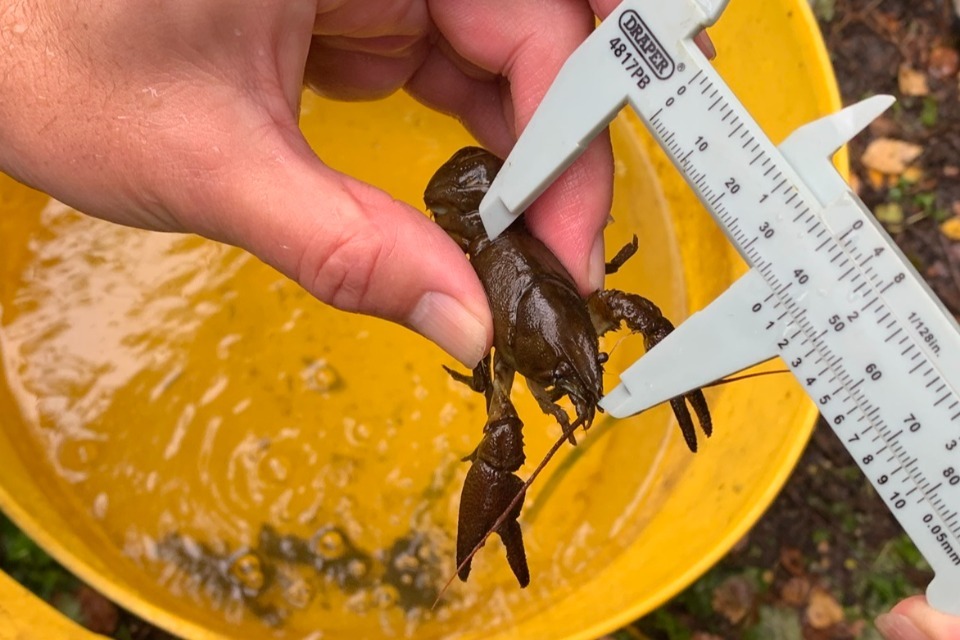In July the Environment Agency’s fisheries team carried out an emergency rescue of a previously unknown population of white clawed crayfish at Burley in Wharfedale.
This followed a report from a member of the public about crayfish in distress in the watercourse, which was very low due to ongoing drought conditions in the region.
The team successfully rescued 32 adults, including 21 females carrying eggs (known as ‘berried’ females). They were taken to the Environment Agency’s licensed quarantine facility hosted by York Gate Gardens near Leeds.
Following health checks, the adults, as well as 30 babies that were born in quarantine, have now been released back into the wild, into a tributary of the River Wharfe.
The Environment Agency has kept around 30 further babies in quarantine at York Gate Gardens until they grow. Potentially, they may be released back into the original tributary of the River Wharfe at Burley in Wharfedale once water levels improve.
The image shows some of the baby crayfish about to be released into the river.
Safe site for crayfish to live
Tim Selway, Environment Agency biodiversity specialist and crayfish expert, said
This location has been chosen as it is already a known safe site for native crayfish in the Wharfe, as a barrier in the river prevents the invasive American signal crayfish from reaching them.
We’re hoping this population will breed and support the long-term future of the species.
Finding this unknown population was great news, and this will help to support native crayfish conservation work in Yorkshire.
White-clawed crayfish are the UK’s only native, freshwater crayfish. They play a vital role in keeping our waterways clean and as a source of food for other native species.

The image shows one of the baby crayfish in the river.
The species used to be common across Yorkshire but are now critically endangered, largely due to being out-competed by the larger, more aggressive American signal crayfish. The invasive species also carried crayfish plague, which is fatal to the native crayfish.
The Wharfe catchment unfortunately has long established and extensive populations of the invasive signal crayfish, which puts the native species at risk.
This year saw the driest spring since 1893, and despite recent welcome rainfall Yorkshire remains in drought. Periods of dry weather and low rivers can have serious consequences for the environment and wildlife and we’d urge people to report fish and wildlife in distress so we can take action.
The Environment Agency’s Incident Hotline can be contacted on 0800 807060.

